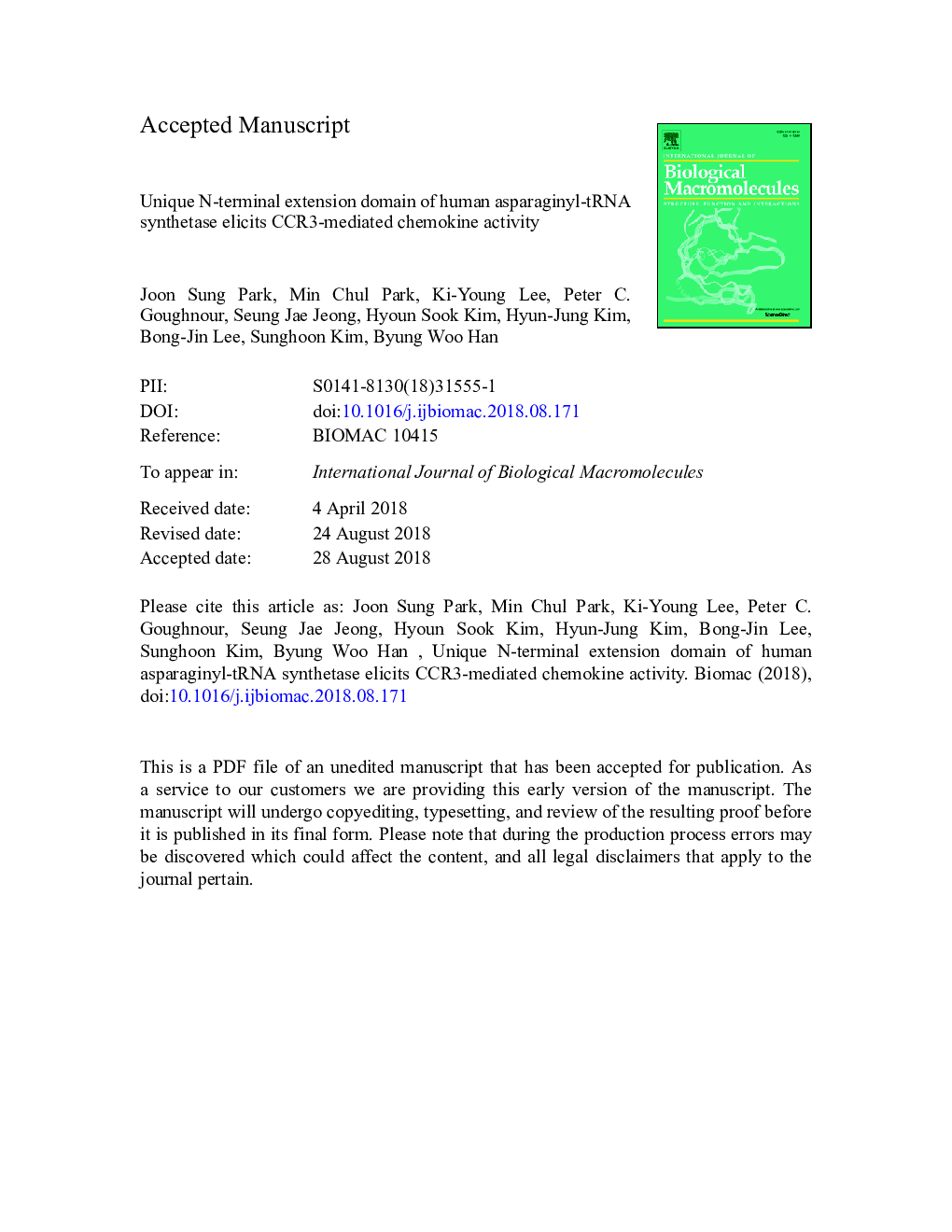| کد مقاله | کد نشریه | سال انتشار | مقاله انگلیسی | نسخه تمام متن |
|---|---|---|---|---|
| 10129212 | 1645202 | 2018 | 36 صفحه PDF | دانلود رایگان |
عنوان انگلیسی مقاله ISI
Unique N-terminal extension domain of human asparaginyl-tRNA synthetase elicits CCR3-mediated chemokine activity
دانلود مقاله + سفارش ترجمه
دانلود مقاله ISI انگلیسی
رایگان برای ایرانیان
کلمات کلیدی
موضوعات مرتبط
علوم زیستی و بیوفناوری
بیوشیمی، ژنتیک و زیست شناسی مولکولی
زیست شیمی
پیش نمایش صفحه اول مقاله

چکیده انگلیسی
Asparaginyl-tRNA synthetase (NRS) is not only essential in protein translation but also associated with autoimmune diseases. Particularly, patients with antibodies that recognize NRS often develop interstitial lung disease (ILD). However, the underlying mechanism of how NRS is recognized by immune cells and provokes inflammatory responses is not well-understood. Here, we found that the crystal structure of the unique N-terminal extension domain of human NRS (named as UNE-N, where -N denotes NRS) resembles that of the chemotactic N-terminal domain of NRS from a filarial nematode, Brugia malayi, which recruits and activates specific immune cells by interacting with CXC chemokine receptor 1 and 2. UNE-N induced migration of CC chemokine receptor 3 (CCR3)-expressing cells. The chemokine activity of UNE-N was significantly reduced by suppressing CCR3 expression with CCR3-targeting siRNA, and the loop3 region of UNE-N was shown to interact mainly with the extracellular domains of CCR3 in nuclear magnetic resonance perturbation experiments. Based on these results, evolutionarily acquired UNE-N elicits chemokine activities that would promote NRS-CCR3-mediated proinflammatory signaling in ILD.
ناشر
Database: Elsevier - ScienceDirect (ساینس دایرکت)
Journal: International Journal of Biological Macromolecules - Volume 120, Part A, December 2018, Pages 835-845
Journal: International Journal of Biological Macromolecules - Volume 120, Part A, December 2018, Pages 835-845
نویسندگان
Joon Sung Park, Min Chul Park, Ki-Young Lee, Peter C. Goughnour, Seung Jae Jeong, Hyoun Sook Kim, Hyun-Jung Kim, Bong-Jin Lee, Sunghoon Kim, Byung Woo Han,